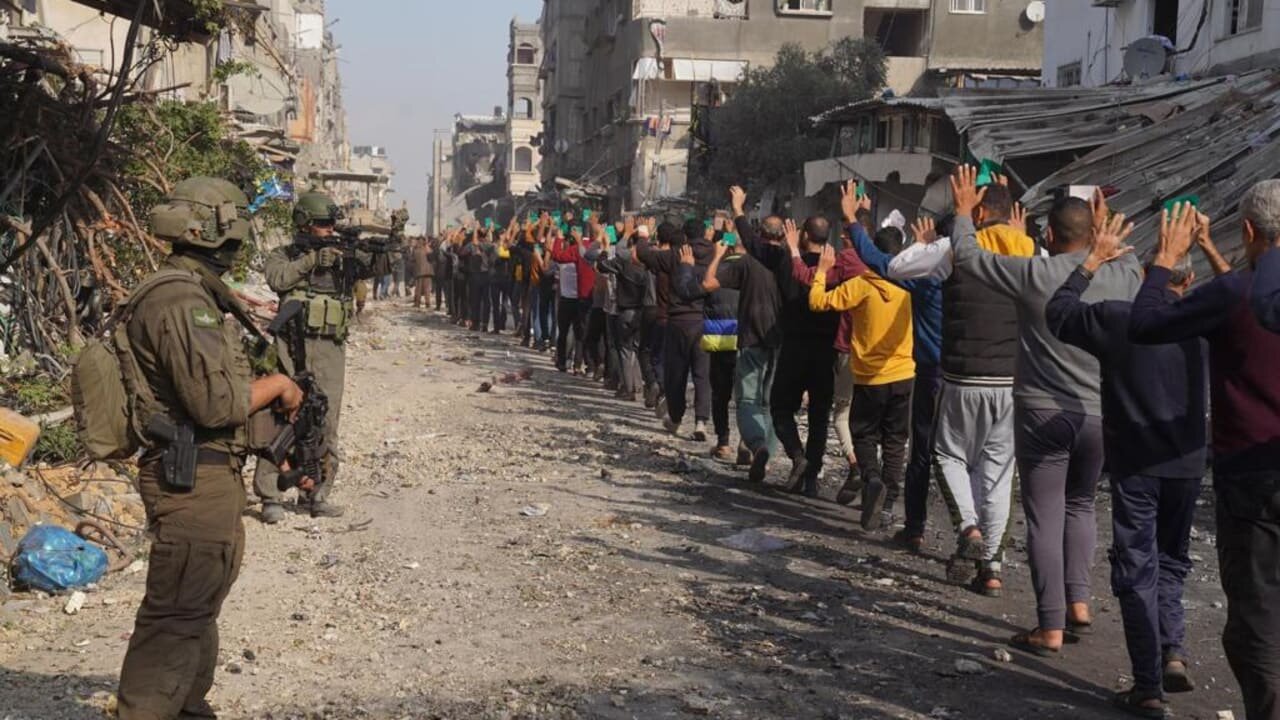Israelis make mass arrests of Palestinian civilians as leverage

TEHRAN – Investigation reveals the majority of Palestinians kidnapped after October 2023 are civilians with no affiliation to Hamas or any resistance movement.
A joint investigation by the Guardian, +972 Magazine, and Local Call reveals that the majority of Palestinians kidnapped by the Israeli occupation regime from Gaza are civilians, not resistance fighters, and many are being held to pressure Hamas in ceasefire talks.
According to Israeli military intelligence, only 1 in 4 detainees are classified as a suspected resistance fighter. In May 2025, 6,000 Palestinians had been imprisoned under the regime’s “unlawful combatants” law, yet only 1,450 appeared in the Israeli military’s own database of suspected Palestinian fighters.
The rest includes teachers, doctors, journalists, civil servants, children, and the elderly, all held without charges, trials, or evidence. One prisoner, 82-year-old Fahamiya al-Khalidi, was kidnapped along with her caregiver in Gaza City and imprisoned for six weeks despite suffering from Alzheimer’s.
A soldier stationed at the regime’s notorious Sde Teiman military prison said so many elderly and disabled people were kidnapped that they were kept in a separate hangar, referred to as “the geriatric pen.”
“They brought men in wheelchairs, people without legs,” he recalled. “Maybe they were arrested just because they saw something.”
No trials, no lawyers, no charges
Under the regime’s “unlawful combatants” law, detainees can be held for up to 180 days without access to a lawyer and 75 days without seeing a judge. Since the genocide began on October 7, not one prisoner kidnapped from Gaza has stood trial.
Human rights groups and even Israeli occupation soldiers say the actual number of fighters is far lower than claimed. “At most, one in six or seven has any real link to Hamas,” said Samir Zaqout, deputy director of the Al Mezan Center for Human Rights in Gaza.
One Israeli officer who oversaw mass arrests in Khan Younis admitted the occupation regime’s soldiers made no distinction between civilians and fighters. “There was no difference between a (resistance fighter) and someone working for the water authority,” he said.
Multiple sources confirmed that many of the civilians are being held not for security reasons, but as leverage in hostage negotiations.
“We kept releasing people ‘for free,’ and it made [soldiers] angry,” said one Israeli soldier. “They’d say: ‘They’re not returning hostages, so why should we let them go?’”
The Israeli regime’s politicians have expressed similar views, reinforcing what human rights groups say is now a systematic policy of mass detention.
“Even before October 7, Israel withheld the bodies of Palestinians as bargaining chips,” said an Al Mezan spokesperson.
“Now, they are doing the same with the living, holding thousands of innocent people to gain political advantage.”
Most detainees are held incommunicado, without any contact with their families or legal representation, a violation of international law.
“This law was designed to strip civilians of legal protections,” said Hassan Jabareen, director of the Palestinian legal rights group Adalah. “It enables indefinite detention without accountability.”
Jessica Montell, director of the NGO HaMoked, called it a case of forced disappearance on a massive scale. “Hundreds, even thousands, are being disappeared, with no charges, no trials, and no communication with the outside world.”
As international pressure grows, rights groups continue to call for the release of detainees held without any reason, and for the Israeli occupation regime to end the use of civilian lives as political tools.
Leave a Comment